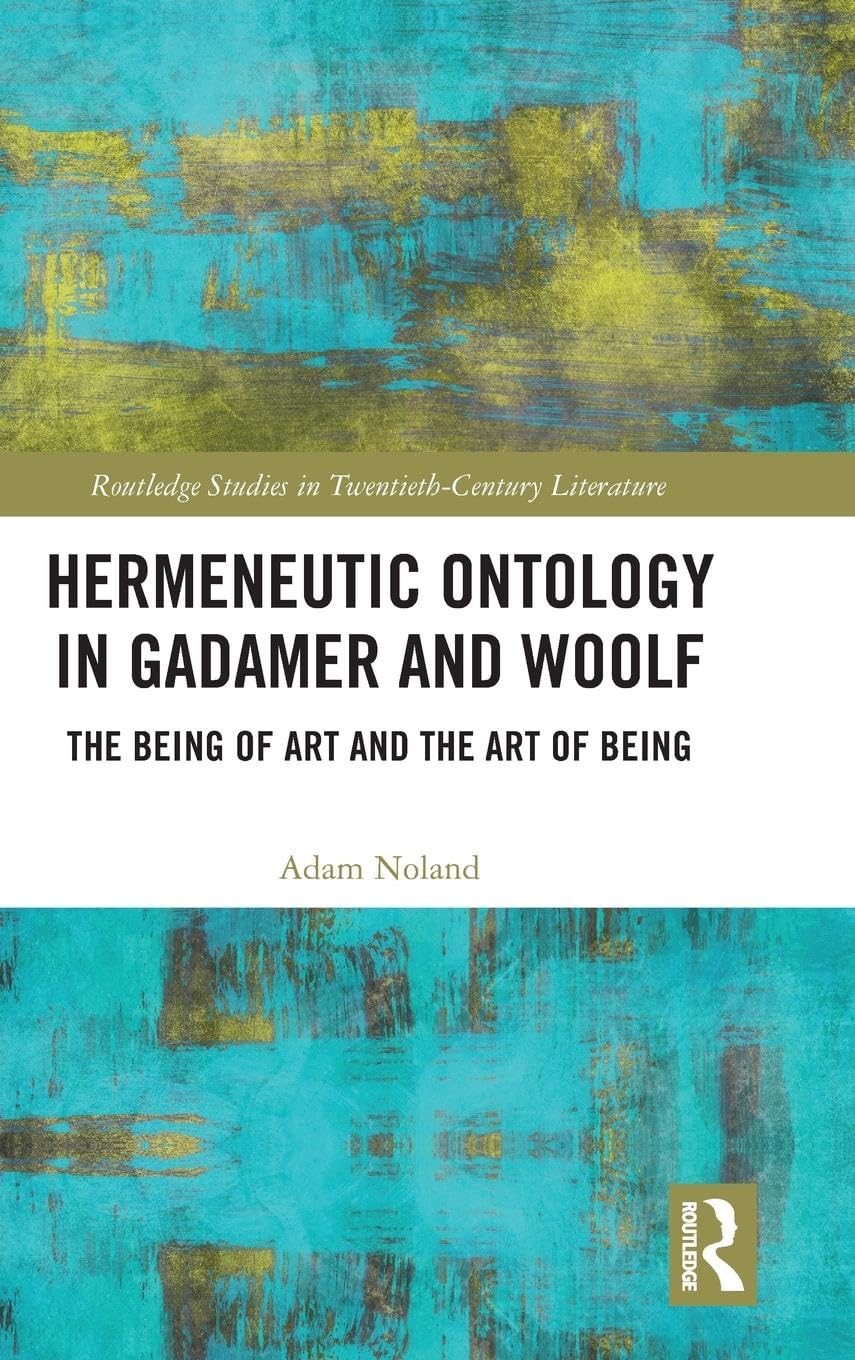Hermeneutic Ontology in Gadamer and Woolf: The Being of Art and the Art of Being
Hermeneutic Ontology in Gadamer and Woolf: The Being of Art and the Art of Being is backordered and will ship as soon as it is back in stock.
Couldn't load pickup availability
Genuine Products Guarantee
Genuine Products Guarantee
We guarantee 100% genuine products, and if proven otherwise, we will compensate you with 10 times the product's cost.
Delivery and Shipping
Delivery and Shipping
Products are generally ready for dispatch within 1 day and typically reach you in 3 to 5 days.
Book Details
-
Author: Adam Noland
-
Publisher: Routledge
-
Edition: 1
-
Binding: Hardcover
-
Number of Pages: 224
-
Release Date: 12-03-2019
-
ISBN: 9780367207403
-
Package Dimensions: 9.4 x 6.3 x 0.4 inches
-
Languages: English
About the Book
Virginia Woolf and the Philosophy of Interpretation explores the intersection of philosophy and literature through a detailed analysis of Virginia Woolf's novels using Hans-Georg Gadamer's hermeneutic ontology. This volume argues that interpretation is not just a tool for understanding Woolf's work but is, in fact, the central theme of her narratives.
In this book, Adam Noland examines how interpretation plays a vital role in understanding the depth and complexity of Woolf's novels. He proposes that to fully grasp her works, one must consider the philosophical pillars of interpretation that underpin them. This approach offers a philosophical framework for interpreting Woolf's literary experiments, where the act of interpreting the text becomes as crucial as the text itself.
The study uses Gadamer’s concept of hermeneutics, which posits that interpretation is an inescapable part of human existence. Gadamer emphasized that understanding is not just an intellectual process but an experiential one, intricately tied to our daily lives and cultural context. Through this lens, Woolf’s novels are seen as an enactment of Gadamer’s philosophy—where the radical questionability of the world is explored and interrogated.
The book highlights how Woolf’s works not only engage with philosophical questions about interpretation but also demonstrate the very process of interpretation within their narrative structure. This analysis draws out the ways in which Woolf’s fiction represents Gadamer’s philosophical insights, creating a dialogue between literary expression and philosophical discourse.
Key Features
-
Philosophical Framework: The book applies Hans-Georg Gadamer's hermeneutic philosophy to Virginia Woolf’s novels.
-
Interpretation as Central Theme: Argues that interpretation itself is the central subject matter of Woolf’s works.
-
Modernist Context: Places Woolf within the broader Modernist movement, showing how her novels contributed to the philosophical conversations of the time.
-
Gadamer’s Influence: Explores Gadamer’s philosophy of the universality of interpretation and how it relates to Woolf’s narrative techniques.
-
In-Depth Literary Analysis: Offers a philosophical analysis of Woolf’s major works, linking them to the larger discourse on meaning and interpretation.
Ideal For
-
Students of Philosophy and Literature: Perfect for those studying the intersection of philosophy, literature, and modernist texts.
-
Virginia Woolf Scholars: A detailed examination of Woolf's novels through a fresh, philosophical lens.
-
Philosophers of Interpretation: Those interested in Gadamer’s hermeneutic philosophy and its applications in literature.
-
Literary Theory Enthusiasts: Readers interested in the Modernist era and the role of interpretation in narrative and meaning-making.
This book offers a unique and thoughtful approach to Virginia Woolf's works, highlighting the importance of interpretation in both philosophy and literature.





